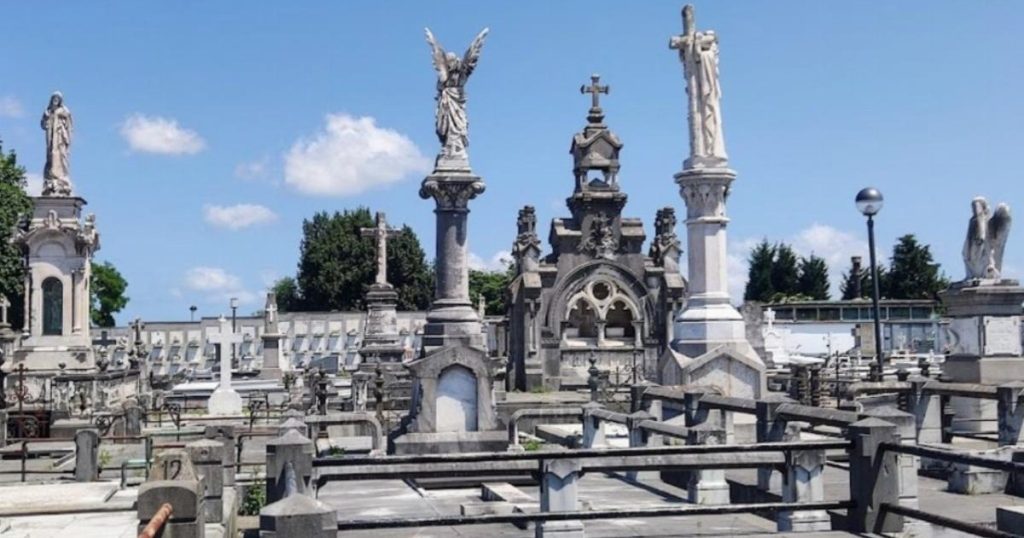This incident revolves around a man, identified only as R.A.D., who exhumed his recently deceased mother’s body from a cemetery in Aviles, Spain. Driven by grief and disbelief over her sudden passing three days prior, he felt compelled to confirm her death personally. His actions unfolded at the La Carriona municipal cemetery, where witnesses observed him approaching his mother’s niche, expressing his anguish over her removal from their home “without permission.” He then proceeded to remove the floral tributes, break the brick partition protecting the coffin, and, despite attempts by onlookers to dissuade him, load the coffin into his car, which he had prepared beforehand by lowering the back seats. R.A.D. then drove home with his mother’s remains.
Upon receiving reports of the incident, police located R.A.D. and his mother’s body at his residence, where he was subsequently arrested. The coffin was returned to the cemetery for reburial. However, legal proceedings necessitated a second removal of the coffin for formal identification and damage assessment. Following his arrest, R.A.D. spent a night in police custody and underwent a psychiatric evaluation, which determined no need for hospitalization. He was brought before a judge, questioned, and released an hour later, granted permission to visit his mother’s gravesite. The investigation continues, and R.A.D. potentially faces charges of grave desecration.
This unusual incident highlights the complex emotional responses individuals may experience in the face of sudden bereavement. R.A.D.’s actions, while undoubtedly distressing to those who witnessed them and potentially violating legal norms, appear to stem from a deep sense of loss and a desperate need for closure. His public pronouncements at the cemetery and his subsequent actions, including the meticulous preparation of his car for transporting the coffin, suggest a premeditated yet emotionally driven act. The fact that he sought assistance from bystanders after breaking into the niche might indicate a conflicted state of mind, perhaps a momentary realization of the enormity of his actions coupled with the overwhelming need to carry out his plan.
The authorities’ response reflects a balance between upholding the law and acknowledging the emotional distress driving R.A.D.’s actions. The psychiatric evaluation suggests a recognition that mental health factors might have played a significant role. The judge’s decision to release him shortly after questioning, coupled with permission to visit his mother’s grave, could be interpreted as a compassionate approach, potentially recognizing the therapeutic value of allowing him to properly grieve. The ongoing investigation, however, underscores the seriousness of the offense of grave desecration and the need to determine appropriate legal consequences.
The incident also raises questions about societal attitudes towards death and mourning. R.A.D.’s actions, while extreme, may reflect a broader struggle to come to terms with death, particularly when it occurs suddenly. In many cultures, rituals and traditions surrounding death provide structure and support for grieving families. However, in some cases, these traditional practices may not be sufficient to address the intense emotional turmoil experienced by individuals struggling with loss. This incident underscores the importance of providing adequate support and resources for those grappling with grief, particularly in cases of unexpected loss.
The case of R.A.D. provides a poignant example of the complexities of grief and its potential to manifest in unexpected ways. While his actions were undoubtedly unlawful and disruptive, they also offer a glimpse into the profound emotional pain experienced by those struggling to accept the reality of death. The legal proceedings and the ongoing investigation will determine the legal consequences for R.A.D. However, the incident also serves as a reminder of the importance of empathy, understanding, and support for individuals navigating the difficult journey of bereavement. The incident highlights the delicate balance between upholding societal norms and recognizing the powerful influence of grief on human behavior.











